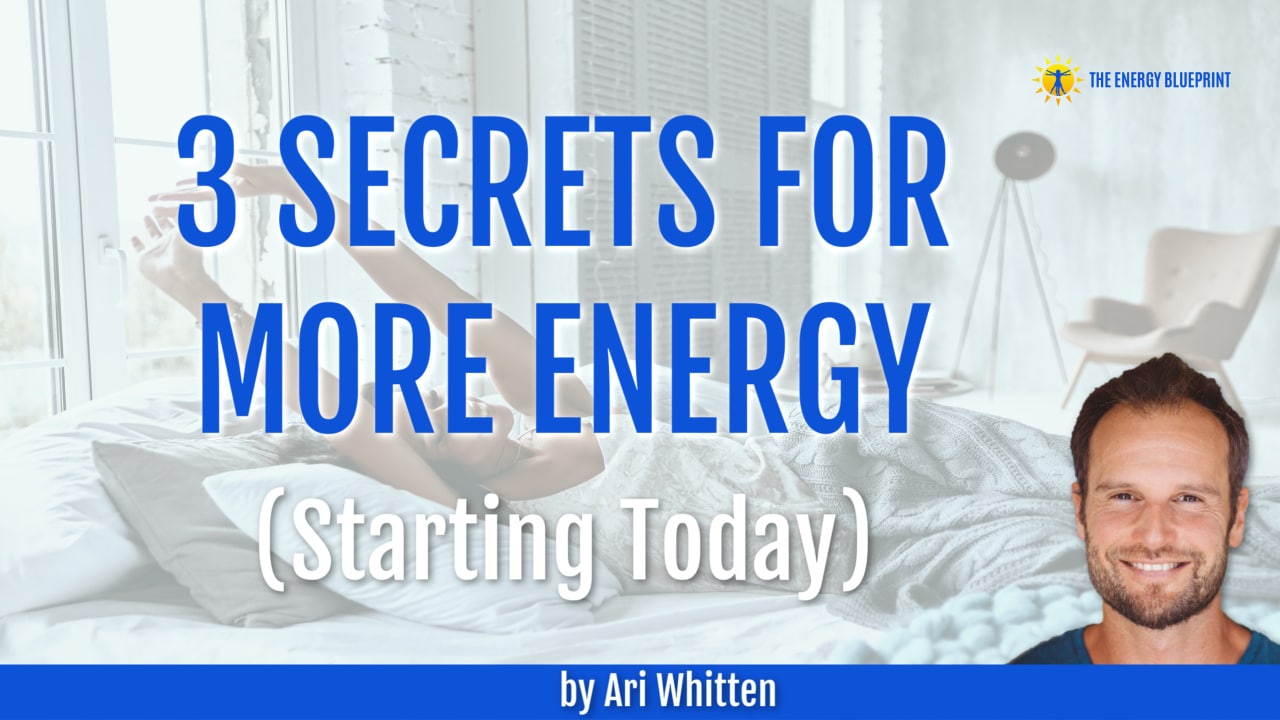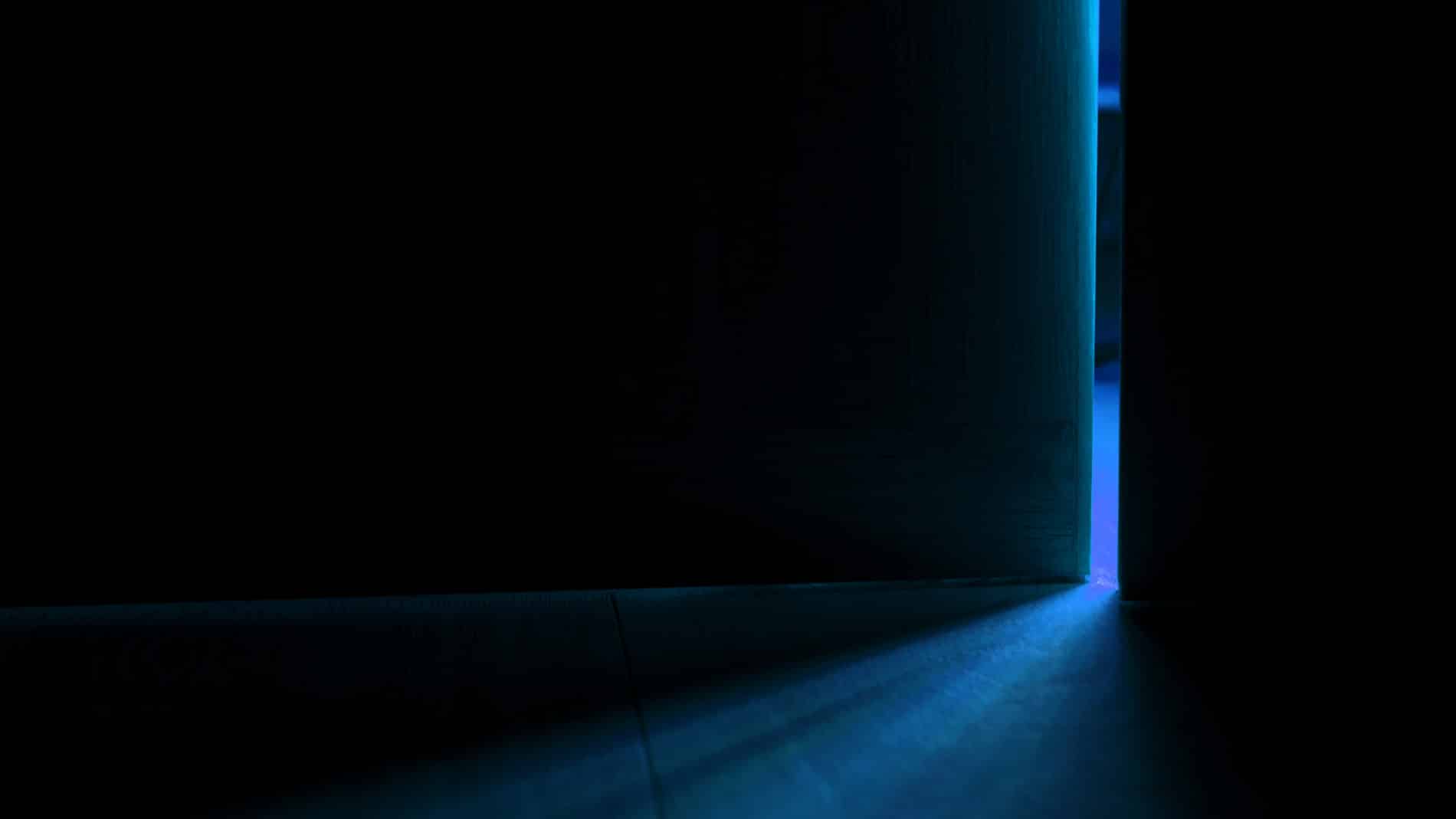 1. Ramp Up Mitophagy in Your Mitochondria
1. Ramp Up Mitophagy in Your Mitochondria
One of the biggest keys to increasing your energy levels is your mitochondria – your cellular energy generators.
A few years ago, a Japanese scientist won the Nobel prize for his work on autophagy.

What’s autophagy?
Well, every day, just through the normal use of your body and brain, your cells accumulate damaged and dysfunctional cell parts. Just as using a car Leads to some accumulation of wear and tear inside the engine and the suspension and other parts of the car, the same is true with your body.
But unlike the car, your body comes equipped with a self-repair mechanism.
Every night while you sleep, your cells undergo this process of autophagy where they chemically break down and “digest” damaged and dysfunctional cell parts.[i] Also, importantly, they then rebuild new healthy cell parts. It also even activates stem cells, which further trigger repair and rejuvenation at the cellular level.
When you don’t do this process of autophagy well, that means you don’t fully repair the damage each night. Ultimately, it means you’re functioning tomorrow on today’s worn out and damaged cell parts.
This process of autophagy is probably most important inside our mitochondria (again, the batteries of our cells) – where it is called “mitophagy.”
Why?
Simple: Damaged mitochondria means less energy production at the cellular level in the trillions of cells in your body. That means less ENERGY overall and more fatigue on the whole body and brain level (YOU), since you are ultimately a collection of trillions of cells.
The single most important factor in energy levels is to optimize your mitochondrial health.
One of the most important strategies to do that is to optimize mitophagy.
There are a number of ways to do that, but here’s two of the most important ways:
- Have a daily feeding window of less than 11 hours (ideally more like 8-10 hours). Reason: The single most important variable in autophagy and mitophagy is having ample time in the nightly fasting window. A number of studies have now shown increased risk of various diseases and cancers from too short a nightly fasting window (likely due to accumulation of cellular and mitochondrial damage). So you want to make your window during the day of your first bite of food to the last bite of food no more than 11 hours of the day (thus making your nightly fasting window at least 13 hours long). Note: Research has already proven that this strategy works to enhance both sleep quality and energy levels (oh, and causes fat loss).[ii]
- Leave at least 2 hours (ideally 3 or 4) between your last bit of food in the evening and your bedtime. Reason: Again, because mitophagy depends on being in a fasted state, and works best while you sleep, you don’t want your body to be still processing the food you ate for dinner during your first few hours of sleep. This just means less time your body has to run the mitophagy cycle.
Implement these simple strategies and you’ll be noticing deeper sleep and more energy – within days.
2. Increase Your “Sleep Efficiency” By Changing Your Bedroom
 Just as you’ve no doubt experienced, after a bad night of sleep, your energy levels (and your mood and brain function) suffer the next day.
Just as you’ve no doubt experienced, after a bad night of sleep, your energy levels (and your mood and brain function) suffer the next day.
Well, what if I told you that this is happening to a more subtle degree all the time, even on nights you think you’re sleeping well?
Many don’t realize it, but even a tiny amount of light entering your bedroom at night can be enough to impair your sleep quality and causes tiredness.
If you have any light at all entering your bedroom — like from streetlights, city lights, or porch/balcony lights coming through either windows or doorways, or you have electronic devices in your room even emitting little dots of light – you will impair your sleep quality.
Believe it or not, there’s research showing that even very, very tiny lights in the room, in the bedroom at night can have a negative impact of measurable negative impact on your brain function the following day.[iii]
There’s also research showing that even a tiny amount of light in the bedroom can dramatically increase your risk of depression.[iv]
In this study, researchers measured light levels in the bedrooms of 863 Japanese adults. The people were then monitored for the development of depression over two years.
73 people developed depression during that time.
When they analyzed the relationship of depression to bedroom light exposure, the researchers found a strong correlation – they found that even seeing more than 5 lux of light (less than a candle light) were dramatically more likely to develop depression.
In surveys with people who struggle to sleep, room darkness is consistently ranked as being one of the most important factors for a good night’s sleep. [v]
 See, light is a powerful signal to your brain to be awake. Even a very small amount of light in the room can be enough to disrupt circadian rhythm. The light from outside street lights, night lights, or electronics can easily be enough to impair sleep depth.
See, light is a powerful signal to your brain to be awake. Even a very small amount of light in the room can be enough to disrupt circadian rhythm. The light from outside street lights, night lights, or electronics can easily be enough to impair sleep depth.
You may still sleep a certain number of hours, but your sleep efficiency is lowered when light is entering your room while sleeping. That means that you and someone else can both sleep for 8 hours, but the person with higher sleep efficiency is getting much more powerful and regenerative sleep per hour of sleep. That’s a key point to grasp – it’s not just about hours in bed, it’s about sleep efficiency!
Having a completely dark room is critical for optimizing sleep efficiency.
Want a simple way to dramatically decrease your risk of depression and improve your brain function, literally overnight?
Then find a way to completely block out all light in your bedroom!
How do you do this?
- The best way to ensure complete blackout is to get rid of all sources of even minor amounts of light in the room and install blackout shades to eliminate light entering from the street.
- If your bedroom situation (or partner) does not allow for that, then wear an eye mask. Most on the market are uncomfortable and annoying, so I’ve also taken the liberty of finding the most comfortable and highest rated eye masks on the market for you. The most comofortable ones are the NiteHoody and the Manta.
There should be complete darkness in your bedroom while you sleep at night. This is extremely important. And it will make a BIG difference in your energy levels (and mood) each day.
3. Optimize Your Sleep According To Your Chronotype (P.S. You’re Probably Not As Much of a Night Owl As You Think – And It’s Sucking The Energy Out of You)
 This is an important one because a lot of people think that they’re night owls and that their natural pattern, their chronotype is to be more of a night person.
This is an important one because a lot of people think that they’re night owls and that their natural pattern, their chronotype is to be more of a night person.
Now I know you’re probably reacting to that and saying, “no, but I really am a night owl.”
Well, here’s the reality: Certain factors in the modern world actually have shifted most people’s circadian rhythm (the 24-hour biological clock in their brain) into more of a night person rhythm than their body is actually designed for.
Why does this matter?
Because you’re paying a price for it – in terms of your energy levels, your mood, your brain performance and your sleep.
One big factor here is artificial light exposure at night (which I’ve written about extensively here).
In short, light entering our eyes at night signals to the clock in our brain “it’s daytime, the time to be awake, alert, and energetic.” This then shifts your body clock into a later time zone than the one you’re actually in.
Also, the fact that we have a night-time social interactions and it’s common to stay out later for those kinds of social engagements.
The modern world basically wires us in to a later circadian rhythm than the one we should be in based on when the sun is rising and falling.
So in other words, based on when the sun is rising and falling, we should be, let’s say going to sleep at 10pm, but the circadian clock gets “phase-shifted” into a time zone that is two or three hours later than the one that it actually should be in.
So again, if you think you’re a night owl, your natural and optimal rhythm is almost certainly earlier than you think.
Now it is possible to be a true night owl, but the rhythm that you should be in is probably still earlier than you think it is. Specifically, your optimal bedtime is probably one to 2.5 hours earlier than you think it is.
Here’s why I say that. There was a study a couple years ago that basically just took a bunch of people that were self-proclaimed night owls and that were commonly going to bed around midnight or 1:00 AM things like that waking up late in the morning and all they did is basically just send them on a camping trip. They just said, go outdoors, sleep in a tent, no artificial lights, no phones, no TVs, no streetlights, no indoor lighting, none of that stuff. Just get out in nature, sleep in a tent. So the only lights you’re being exposed to are the rise and fall of the sun, the moon, firelight and so on.

Here’s what happened…
All of the campers – even the night owls – shifted their circadian clocks and started going to bed and waking up several hours earlier, within just a few days!
They shifted towards a sleep schedule that more closely mirrored the setting and rising of the sun as a whole.
“The campers slept for roughly the same amount of time each night as before, but fell asleep two hours earlier and a woke without alarm clocks two hours earlier as well.”[vi]
In other words, people who swore they were “night owls” and usually go to sleep at 12pm or 1am or 2am (and waking up at 8am-11am) started going to bed at 10pm and waking at a 6am!
They said in some of the articles talking about this, the time spent outdoors during the day and night “restored a natural sleep cycle, turning even night owls into early risers.”[vii] [viii]
This was the actual study published in the journal, current biology This is an important one because a lot of people think that they’re night owls and that their natural pattern, their chronotype is to be more of a night person and that their natural pattern is actually a lot later then it actually is.
What does this mean for you?
It means that the optimal rhythm for the human biological clock — our circadian rhythm, which directly controls numerous hormones and neurotransmitters that impact on our energy levels, sleep and mood – is optimized by an earlier bedtime than most people think.
In Chinese Medicine, they say “an hour of sleep before midnight is worth 4 hours after midnight” (in terms of the healing/rejuvenation that takes place in your body). While we don’t have research to back that exact assertion up, many people report that there is something to it. It likely has to do with the fact that it is more aligned with what our biology is designed for!
P.S. If you’d like to learn 33 more amazing science-backed secrets to sleep deeper than you have in years and have as much energy as you did when you were a kid, then click here.
References
[i] Alirezaei M. et.al., (2010) Short-term fasting induces profound neuronal autophagy 2010 Aug 16; 6(6): 702–710. Published online 2010 Aug 14. doi: 10.4161/auto.6.6.12376
[ii] Salk (2015) Mobile App Records Our Erratic Eating Habits
[iii] Kang SG., et.al., (2016) Decrease in fMRI brain activation during working memory performed after sleeping under 10 lux light Scientific Reports volume 6, Article number: 36731 (2016)
[iv] Time (2018) Being Exposed to Even a Small Amount of Light During Sleep is Linked to Depression
[v] Breus, MJ (2012) How Sleep-Friendly Is Your Bedroom? Huffpost
[vi] Stothard, ER., et.al., Circadian Entrainment to the Natural Light-Dark Cycle across Seasons and the Weekend DOI:https://doi.org/10.1016/j.cub.2016.12.041
[vii] The Washington Post (2017) How to reset your body clock, and get better sleep, with hiking boots and a tent
[viii] Bergland C., (2013) Why Is a Camping Trip the Ultimate Insomnia Cure?, Psychology Today




